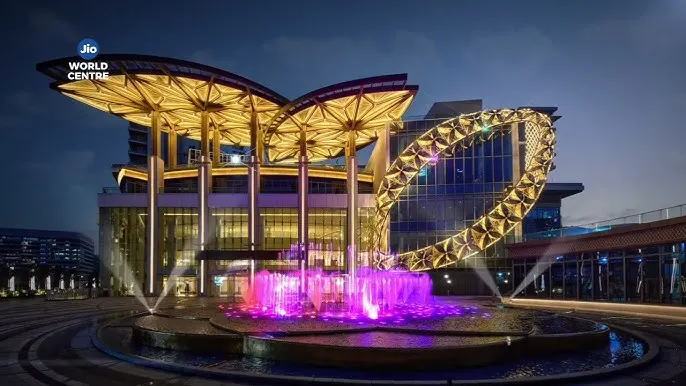Table of Content
▲
Industry bodies like the Federation of Indian Chambers of Commerce and Industry (FICCI) and the Associated Chambers of Commerce and Industry in India (Assocham) are calling on the government to allow real estate developers to claim input tax credit (ITC) under the CGST Act on commercial properties constructed for leasing purposes. This move is aimed at maintaining the credit chain, reducing tax ambiguities, and ultimately spurring growth in the real estate sector and the broader economy. In this blog, we delve into the key arguments, legal background, and potential economic benefits of permitting ITC for commercial properties on lease.
Understanding Input Tax Credit (ITC) and CGST
Input Tax Credit (ITC) is a mechanism that allows businesses to reduce the tax they have paid on inputs (goods and services) from the tax they owe on their output. Under the Central Goods and Services Tax (CGST) framework, businesses can claim ITC on eligible goods and services, thus avoiding the cascading effect of taxes. For the real estate sector, especially for commercial properties constructed for leasing, ITC can significantly lower overall costs and improve cash flow.
Key Aspects of ITC:
- Cascading Effect Prevention:
ITC helps eliminate the tax-on-tax burden by allowing businesses to claim credits for the taxes paid on inputs. - Cost Efficiency:
By reducing the effective tax cost, ITC makes projects more financially viable. - Enhancing Liquidity:
Availability of ITC improves liquidity for developers, enabling them to invest more in quality construction and innovative projects.
Also Read: How Budget 2025 Impacts Homebuyers: Affordable Housing
The Proposal by FICCI and Assocham
What Are They Asking For?
FICCI and Assocham have recently written to the Finance Ministry, urging that real estate developers be permitted to claim ITC on immovable commercial assets built specifically for leasing purposes. Their proposal is based on the following key points:
- Maintaining the Credit Chain:
Allowing ITC on commercial properties used for leasing would help ensure that the input tax credit mechanism remains intact, promoting efficiency and fairness in the tax system. - Economic Benefits:
The associations argue that such a policy would boost the real estate sector by lowering construction costs for developers. With an average annual addition of 55-60 million square feet of commercial space in India, even a marginal reduction in tax burden could generate significant economic benefits. - Alignment with Judicial Precedents:
FICCI and Assocham reference the Supreme Court’s ruling in the Safari Retreats Pvt Ltd case, where the court held that buildings constructed for leasing purposes could be classified as ‘plant’, thereby allowing ITC under Section 17(5)(d) of the CGST Act.
Proposed Legislative Changes
The proposal comes in the wake of a Budget proposal that suggests a retrospective amendment to the CGST Act. Specifically, clause (d) of sub-section (5) of Section 17 is being amended to replace “plant or machinery” with “plant and machinery.” This amendment, effective retrospectively from July 1, 2017, aims to clarify the eligibility for ITC claims on commercial properties constructed for leasing purposes.
FICCI estimates that the potential GST revenue generated from construction in the commercial leasing sector ranges from ₹2,500 crore to ₹3,000 crore annually. However, considering that many developers have not availed the credit and instead capitalized on the GST component for depreciation, the net potential revenue impact could be between ₹900 crore and ₹1,100 crore per annum.
Legal and Economic Perspectives
Legal Considerations
The legal debate centers on whether ITC should be allowed for commercial properties used solely for leasing. The Supreme Court’s decision in the Safari Retreats case supports the view that if the construction is necessary for the provision of leasing services, it can fall under the ‘plant’ category eligible for ITC. FICCI and Assocham are seeking a formal clarification from the government on this matter, which would align with the court’s ruling and ensure uniformity in tax practices.
- Clarification Needed:
The industry bodies have requested that the Finance Ministry clearly state that ITC on inputs and services used for constructing commercial assets intended for leasing should be permitted, while blocking the same for properties built for personal use.
Economic Implications
From an economic perspective, allowing ITC on commercial properties for leasing can have a significant positive impact on the real estate sector:
- Lower Construction Costs:
Enabling ITC claims would reduce the effective tax burden on developers, making projects more economically viable. - Enhanced Investment:
With improved liquidity and lower costs, developers are likely to invest more in constructing high-quality commercial spaces. This can stimulate overall market growth and attract both domestic and international investors. - Sustained Market Growth:
A robust ITC mechanism would help maintain the credit chain within the real estate sector, fostering sustainable growth and ensuring that the sector continues to thrive even in fluctuating economic conditions. - Revenue Impact:
While there is a potential for some reduction in immediate GST revenue, the long-term benefits of increased investments and higher-quality developments could outweigh the short-term fiscal impact, leading to a healthier, more dynamic market.
What This Means for Real Estate Developers and Investors
For Developers
- Cost Reduction and Efficiency:
Developers can significantly reduce their operational costs by claiming ITC on commercial construction, leading to more competitive pricing and higher profit margins. - Enhanced Project Viability:
Lower effective tax costs improve project viability, enabling developers to undertake larger, more ambitious projects without financial strain. - Strategic Advantage:
Clarity in ITC rules provides a level playing field, allowing developers who adhere to best practices to leverage the tax benefits for sustainable growth.
For Investors
- Attractive Investment Climate:
A clearer, more favorable ITC regime enhances investor confidence, encouraging investments in the commercial leasing sector. - Long-Term Growth Potential:
With developers able to reduce costs, the overall market may experience accelerated growth, leading to higher property values and better returns on investment. - Risk Mitigation:
A stable and predictable tax framework minimizes financial uncertainties, making the commercial real estate market a safer and more appealing investment option.
Conclusion
The proposal by FICCI and Assocham to allow real estate developers to claim input tax credit under CGST on commercial properties constructed for leasing purposes represents a significant shift in the taxation landscape. By seeking formal clarification that aligns with the Supreme Court’s ruling in the Safari Retreats case, these industry bodies aim to maintain the integrity of the credit chain and foster sustainable growth in the real estate sector.
Allowing ITC for commercial leasing properties not only reduces construction costs for developers but also creates a more attractive investment climate, potentially boosting economic activity in the real estate market. For developers and investors alike, a clear and fair ITC framework can lead to more robust project development, higher-quality construction, and long-term market stability.
As the government deliberates on this proposal, it is crucial for stakeholders to stay informed and engaged with the latest regulatory updates. A favorable ITC regime will pave the way for a more dynamic and competitive real estate market in India one that supports innovation, sustainable development, and equitable growth across the sector.
By understanding these reforms and their implications, you can better navigate the evolving landscape of commercial real estate. Whether you’re a developer, investor, or industry professional, the anticipated changes to the CGST law could be a catalyst for a new era of growth and efficiency in India’s real estate market.
Also Read: Your Ultimate Guide to Commercial Property Investment



_1772441702.webp)





Ans 1. ITC allows businesses to claim credit for GST paid on inputs against their GST liability on output, reducing the cascading effect of taxes.
Ans 2. They are urging the government to allow real estate developers to claim ITC on commercial properties built for leasing, aligning with judicial precedents.
Ans 3. Developers could reduce overall construction costs, improve liquidity, and offer more competitive home loan terms, thereby boosting project viability.
Ans 4. The Supreme Court ruling in Safari Retreats supports classifying buildings constructed for leasing as 'plant,' thereby making them eligible for ITC.
Ans 5. Lower construction costs and improved liquidity can spur investment, stimulate market growth, and eventually lead to increased development in the real estate sector.
Ans 6. While immediate GST revenue might see a reduction, the long-term benefits include increased investments and higher quality development, which can stabilize market growth.
Ans 7. A retrospective amendment is proposed to replace “plant or machinery” with “plant and machinery,” clarifying ITC eligibility for commercial properties used for leasing.
Ans 8. Real estate developers constructing commercial properties for leasing will benefit, leading to more competitive pricing and increased market activity.
Ans 9. Presently, many developers cannot claim ITC on commercial properties, leading to higher costs and disruption of the credit chain in the real estate sector.
Ans 10. Stakeholders should monitor official government notifications, industry reports, and updates from bodies like FICCI and Assocham for the latest regulatory changes.